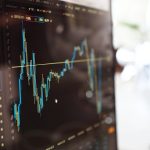A CFD broker is a company that enables you to trade CFDs on financial markets. These are sophisticated financial instruments that allow investors to profit from the rise and fall of stocks, commodities, index futures, and foreign currencies.
What are CFD’s
CFDs are derivatives – their value is derived from something else. In this case, it’s the price of an underlying asset such as a stock or commodity. Technically they’re contracts for difference (hence “CFD”) because CFD brokers don’t own the underlying assets – they simply track them to calculate how much profit or loss you make when they change in value. This makes them particularly quick and safe investments – there’s no need to go scrambling around looking for shares or options to trade them, as is the case with traditional share trading.
In short, CFDs show you how much money an asset has made or lost since you opened your investment position without physically owning anything (apart from your CFD broker account).
Why should you get a CFD broker?
CFD brokers are essential because they’re where investors gather to find out market movements and open positions. These companies don’t only provide the accounts necessary to purchase contracts – many also offer valuable insight into current events through their research teams. It makes them extremely valuable “go-to” resources for anyone looking to make an informed choice about whether to take a financial position.
Choosing a CFD broker can be daunting at first for budding investors who are new to this type of asset. There are several critical questions you’ll need to ask yourself when finding the right broker.
What kind of trading platform is available?
There are many different trading platforms on offer, ranging from highly sophisticated and expensive software suites to simple HTML pages with static charts and graphs. There’s no “best” option here, though – simply find one that works for you.
If you’re new to CFD trading, it may be worth visiting a few and testing their platforms out before picking one (do this by opening an account with each).
How much will everything cost me?
Most brokers will start with attractive offers such as free research reports and market data, but once clients get used to them, they end up paying hundreds of dollars per month more. It’s essential to look at all the variables here before choosing a broker, or else you run the risk of getting gouged on some hidden fees later down the line.
How secure is my account?
The safety of your money may seem like an obvious concern, but unfortunately, it isn’t for everyone. Many CFD brokers have been known to lose significant amounts of their clients’ funds due to technical problems, cyberattacks, and plain old fraud.
It means that you need to do everything possible to protect your assets by choosing a highly reputable company.
What about customer service?
This can be one area where new investors are often disappointed – especially when they do everything right only to have their account closed down for no apparent reason. If a broker is going to reject your business, they should at least give you the courtesy of telling you why beforehand – and make sure that all of their clients know what will happen if they break the rules (losing your money).
To keep in mind here, many CFD brokers are based overseas, which means language barriers can come into play when there’s a problem. This doesn’t necessarily mean that it’ll be impossible to resolve things – but it does mean that you’ll need to work harder and faster than most people do to fix any issues as soon as possible.
What about taxation?
Depending on where you live and how much income you earn from investing, you may end up paying taxes on your CFD trading. Different countries charge different rates – this is something that you should check into before signing up with any broker.
One final point to consider here is whether or not the company will disclose your tax information to the government. It means if you make a profit, they’ll know about it and be able to collect what’s due from your accounts. If you’d prefer not to have them report back on how much money you’ve made (in their eyes, anyway), this can be an essential factor in choosing a trader.










